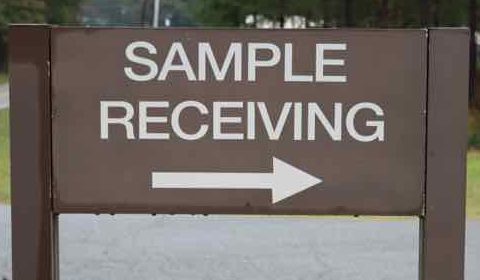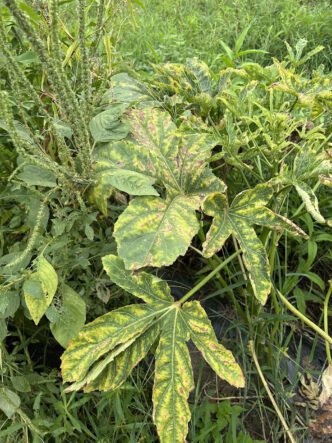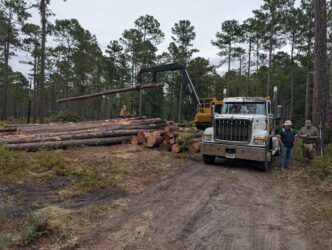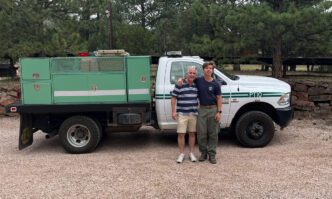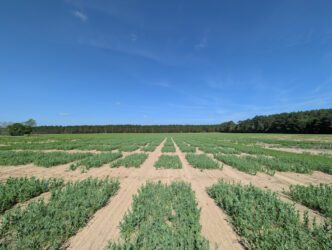CLEMSON – Fall is in the air and hundreds of photos of changing landscape colors are being shot every day. Clemson University experts say pictures growers should focus on this season are those that give a clearer vision of their soils’ health.

Soil tests can help by giving snapshots of soil fertility. These tests are available from the Clemson Agricultural Service Laboratory.
“Fall and winter are the best times for growers to have their soils tested,” said Shannon Alford, Ag Service Laboratory director. “Testing now gives growers plenty of time to get their soils ready for spring planting.”
Soil tests run at $6 per sample. The basic soil test provides information regarding soil pH, calcium, magnesium, phosphorus, potassium, sodium and more. Growers who test now have plenty of time to apply lime, fertilizer and other nutrients needed to grow profitable crops in the spring.
“Each soil report is tailored to the specific crop and soil results,” Alford said. “When growers have their soils tested, they will be given crop-specific recommendations to assist them in making fertility decisions for optimal crop yields.”
Separate soil samples should be collected for areas cropped or fertilized differently or those with different soil types or textures. For large areas, one soil sample should represent 10 acres or less. For home gardens, lawns or ornamental beds, just one sample is required per uniform area.
To collect soil samples:
- Use a soil auger, spade or shovel. Samples from cultivated areas should be taken from the surface to a depth of 6 to 8 inches. Samples from pasture or turf should be taken only 2 to 4 inches deep.
- Soil cores should be approximately the same size throughout their depth. No adjustments are needed if using a soil probe. If using a spade or shovel, take a thin slice from the side of a V-shaped hole. Take sub-samples from at least 12 locations within the sample area.
- Place the sub-samples in a clean plastic bucket and mix thoroughly.
- Do not heat a moist soil sample to dry. Spread soil out on newspaper and let air dry overnight. Crumble and mix before it hardens.
- Label or number each soil bag. Fill bag to fill line (the equivalent of 1-2 cups). Do not use the same number for more than one sample.
A soil analysis form should accompany each sample. These forms can be found at https://www.clemson.edu/public/regulatory/ag-srvc-lab/soil-testing/soil.pdf. Samples, payments and completed forms can be sent to the Ag Service Lab by any of the following methods:
- Ship samples to 171 Old Cherry Road, Clemson, SC 29634, via the U.S. Postal Service, United Parcel Service or FedEx.
- Contact the local County Cooperative Extension Office to see if it is open and available for dropoffs.
- Leaveamples in the dropbox on the lab’s loading dock at 171 Old Cherry Road, Clemson, SC 29634. Forms for all sample types are available at the dropbox. Leave samples and payment. The dropbox is checked multiple times per day. Ring the doorbell during regular business hours to alert someone to check for your dropoff.
- Order a soil sample mailer kit online, one per sample. This mailer is recommended for one or two samples only, and only for soil. The mailer includes a form, instructions, soil sample bag, and postage-paid envelope for return. Instructions for ordering a soil sample mailer kit are available at: https://www.clemson.edu/public/regulatory/ag-srvc-lab/soil-sampler-mailer.html
Once clients receive their reports, they can call the staff at the Clemson Home and Garden Information Center, (888) 656-9988, or their local Cooperative Extension Service county office for consultation.
To reach the Ag Service Lab, call (864) 656-2068 from 8 a.m. to 4:30 p.m. Monday through Friday, or email agsrvlb@clemson.edu. The lab is part of Clemson Regulatory and Public Service Programs.
In addition to soil tests, other services provided by the Ag Service Lab include analytical tests for:
- Feed and forage – to determine nutrient content of feed such as hay, silage, forage, grain and pet treats.
- Plant Tissue – to determine nutrient deficiencies or toxic levels in plant tissue samples.
- Irrigation Water – to determine nutrient levels and other components such as acid levels, salinity, alkalinity, nitrates and more in water used for irrigation.
- Animal Waste – to determine content of animal waste used as fertilizer.
Soil test factsheets are available online from the Clemson Home and Garden Information Center.
Video for soil testing avaiable on YouTube: https://www.youtube.com/watch?v=Sio_yhdBT6E
-END-

